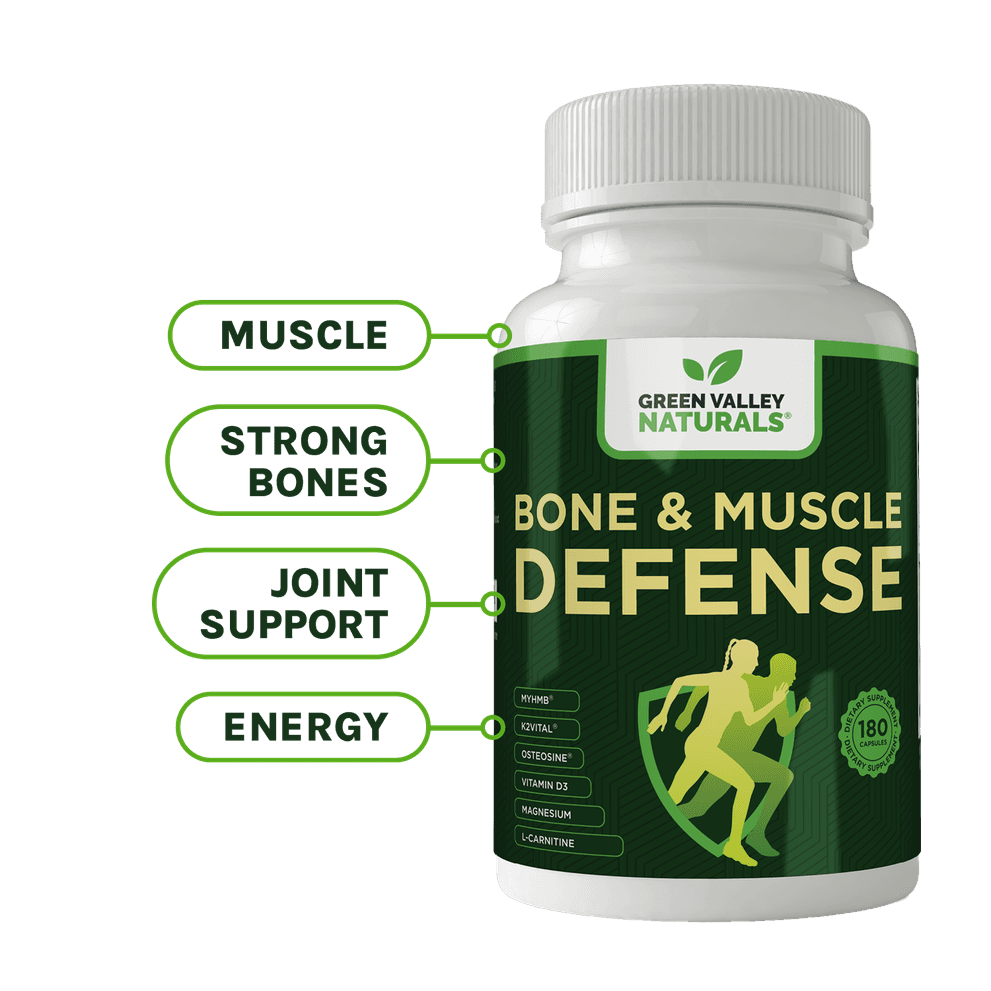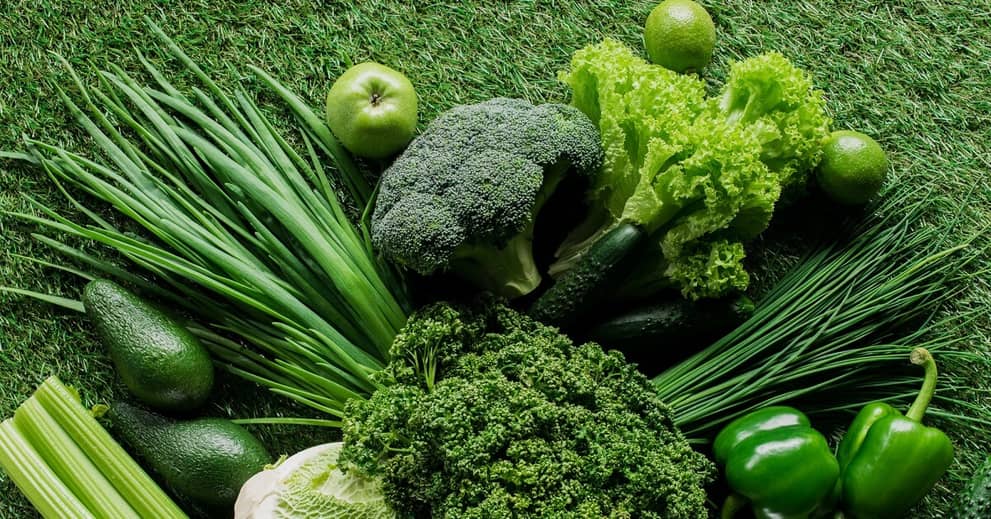
Feeling like your brain is running on fumes? You're not alone. In our fast-paced world, mental fatigue and brain fog have become all too common. But, could nature hold the key to unlocking your mind's full potential?
The latest research says yes. Scientists point to two ancient botanical powerhouses that have been enhancing cognitive function for millennia. From the world's oldest tree species to the "king of tonic herbs," this dynamic duo could be the missing piece in your quest for peak mental performance.

Key Takeaways
-
Ginkgo biloba and Panax ginseng are two of the most widely used herbs in natural medicine and traditional Chinese medicine (TCM), and have a history of use for many centuries.
-
Both herbs offer unique health benefits for your brain, including improving cognition, reducing brain fog, stress and anxiety, and promoting overall health and well-being.
-
In combination, both Panax ginseng and Ginkgo biloba appear to be even more potent than they are alone, enhancing cognitive function and neuroprotection through their synergistic effects.
Why Ginkgo Biloba and Ginseng?
Asians have sung the praises of ginkgo biloba extract and panax ginseng extract for eons. And some cultures still consider them strong enough to raise someone from the dead. Indeed, they are two of the most widely used herbs in traditional Chinese medicine. To them, ginseng is considered “the king of tonic herbs” and the “elixir of life.”
Both Panax ginseng and ginkgo biloba have been used to support cognitive function, reduce stress, and promote overall health and well-being. Their combined use enhances cognitive function and neuroprotection, with studies demonstrating their synergistic effects. These herbs may have especially beneficial effects for students’ exam performance, as they can boost cognitive function, help students cope with stress, and energize the body.
Panax Ginseng: A Special Form of Ginseng
To date, just 13 species of ginseng have been identified, with the most common one used in supplements being Panax ginseng (also known as Korean ginseng) and American ginseng (grown in the U.S. and Canada).
It’s important to distinguish genuine Panax ginseng extracts from other forms that fly under the ginseng radar but don’t offer the same compounds or the same benefits. Panax ginseng also goes by the names Asian ginseng, Asiatic ginseng, Manchurian ginseng, mountain ginseng, true ginseng, and wild ginseng.
Panax ginseng should not be confused with or used interchangeably with Siberian ginseng, American ginseng, Thai ginseng, black ginseng, desert ginseng, Brazilian ginseng, Indian ginseng or Chinese ginseng-- these are actually very different.
Panax Ginseng Extracts
Panax ginseng comes from the root of a 4- to 6-year-old Panax ginseng herb (also known as Korean ginseng), which is typically grown on mountain slopes. The word “panax” means “cure-all.” And as its name suggests, it has a wide array of medicinal uses.
Ginseng may sharpen your memory, wipe away brain fog, and also help address tiredness and fatigue. It is considered an adaptogen, meaning it helps your body cope with stress. Both Panax ginseng and Ginkgo biloba are often used together to enhance cognitive function and neuroprotection, leveraging their synergistic effects.
Most of ginseng’s benefits come from active ingredients called ginsenosides and their metabolites. [3] Ginsenosides boast anti-inflammatory, antioxidant, and neuroprotective properties.
Other active ingredients in Panax ginseng include polysaccharides, peptides, phytosterols, peptides, polyacetylenes, polyacetylenic alcohols, and fatty acids.
Ginseng is most often used to improve focus, reduce stress hormones, lower inflammation, regulate blood sugar, and support immune health. Ginseng also shows promise in preventing some of today’s most dreaded neurodegenerative diseases, including dementia, Alzheimer’s disease, Parkinson’s and Huntington’s diseases.
Ginkgo Biloba Extract
Ginkgo biloba extract comes from the world's longest-living tree species called the Ginkgo biloba tree -- otherwise called the maidenhair tree. They were around when dinosaurs roamed the earth and, not surprisingly, they're extremely hardy.
Ginkgo biloba contains powerful beneficial compounds including flavonoids (such as quercetin and kaempferol) and terpenoids (including ginkgolides and biolbalides). Flavonoids are powerful antioxidants, and terpenoids help improve circulation by dilating blood vessels and reducing platelet "stickiness."
Numerous clinical trials have investigated the effects of ginkgo biloba on cognitive function and other health outcomes. A study published in the Journal of the American Medical Association (JAMA) found that ginkgo biloba extract improved cognitive function in patients with dementia. Another study published in the journal Human Psychopharmacology found that ginkgo biloba improved memory and cognitive performance in healthy individuals. These studies demonstrate the potential benefits of ginkgo biloba for supporting cognitive function and overall brain health.

Health Benefits of Ginkgo Biloba and Panax Ginseng
Ginkgo biloba and Panax ginseng are praised for their numerous health benefits – especially brain benefits such as supporting cognitive function, reducing stress and anxiety, and promoting blood flow to the brain. They also reduce inflammation and oxidative stress and promote the growth of new brain and nerve cells.
Both herbs have anti-inflammatory and antioxidant properties, which help protect brain neurons and reduce the risk of cognitive decline and Alzheimer’s disease.
Ginkgo biloba has been shown to boost memory, concentration, and mental clarity… while Panax ginseng reduces fatigue, improves mood, and enhances mental performance.
A double-blind, placebo-controlled 14-week study conducted at the University of Reading on 256 healthy middle-aged volunteers found that taking ginkgo and ginseng together gave an average improvement of memory quality of 7.5%. This memory enhancement improved both working memory and long-term memory, which was observed both throughout the dosing period and after a 2-week washout period. [5]
Some research suggests that both Panax ginseng and Ginkgo biloba could be useful for treating Alzheimer’s disease and dementia because of improved blood flow to the brain and their ability to protect neurons from damage. Their combined use enhances cognitive function and neuroprotection, demonstrating synergistic effects that are supported by clinical studies and traditional medicine.Panax ginseng and Ginkgo biloba can also help relieve brain fog.
Both herbs are considered nootropics (“smart drugs” or “smart supplements” to improve mental performance). In fact, they're popular in today’s neurohacking movement-- a movement to use diet, lifestyle and nutritional supplements to improve brain function.
How Ginkgo Biloba Supports Cognitive Function
Ginkgo is shown to improve memory, concentration, and mental clarity, and to reduce the risk of cognitive decline. Even more exciting, ginkgo biloba has been shown to boost cognitive function in both healthy people and those with cognitive impairment. [2, 4]
One review published in 2015 found that ginkgo could stabilize or slow deterioration in cognitive function in people who already have cognitive problems or dementia. [11] And a 2017 review of 12 studies concluded that ginkgo has potential beneficial effects when given at doses more than 200 gm per day for a minimum of five months to those with dementia. [12]
So, how does ginkgo biloba work?
Improves Blood Flow
Ginkgo biloba supports cognitive function by improving blood flow to the brain, which enhances the delivery of oxygen and nutrients to brain cells. This, in turn, boosts cognitive performance, memory, and concentration. Since ginkgo improves blood flow to the brain, it can help support cognitive function, and energize the brain, and some believe that it can reduce the risk of Alzheimer's disease.
Provides Antioxidants
The flavonoids and terpenoids present in ginkgo biloba extract have antioxidant properties, which protect brain cells from damage caused by free radicals. Additionally, ginkgo biloba has been shown to inhibit the activity of platelet-activating factor (PAF), a compound that can cause inflammation and damage to brain cells.
Increases Neurotransmitters
Gingko biloba helps increase production of neurotransmitters including dopamine and serotonin, which are important for healthy mood and cognition. These neurotransmitters can also help attention and focus, clearing away brain fog.
How Panax Ginseng Improves Cognitive Function
Panax ginseng has been shown to cut down on inflammation and reduce oxidative stress -- which in turn protects brain neurons and reduces the risk of age-related cognitive decline. Its mechanism of action against inflammation is that it reduces the production of pro-inflammatory cytokines that trigger inflammation and oxidative stress.
Ginseng also promotes the growth of new brain cells, which helps support cognitive function. In fact, one 2013 study concluded that Panax ginseng can significantly boost physical and intellectual work capacity. [1]
Panax ginseng helps your mood, too. It reduces the production of stress hormones such as cortisol, helping reduce the adverse effects of stress on the body and brain.

Benefits Beyond Your Memory
Improved Circulation and Protection from Heart Disease
Just as ginkgo and ginseng have the ability to improve circulation to the brain and neurons, they also can improve overall circulation -- which helps support heart health and prevent heart disease.
One study (2008) showed that patients with heart disease who supplemented with ginkgo saw immediate improved blood flow to numerous organs in the body -- attributed to a 12% increase in nitric oxide levels. [6]
Another study found the same effect in older adults who were supplemented with ginkgo biloba extract. [7] There are various explanations for this... most likely relating to its anti-inflammatory effects.
Defend Against Stroke
Stroke is a major cause of death and disability around the world. So imagine what would happen if ginkgo and ginseng could protect your brain's nerve cells against stroke? The research suggests this dynamic duo may do just that.
A laboratory study published in the journal Frontiers in Pharmacology in 2022 evaluated a combination of Panax ginseng extract and Ginkgo biloba extract on rats with cerebral ischemia -- one type of stroke. The study found that the herbal combination improved neurological function by reducing excitotoxicity (damage caused by over-stimulation of neurons) and neuroinflammation. [10]
This was achieved by inhibiting the NLRP3 inflammasome, which is a key component of the inflammatory response... and also activating the CAMK4/CREB pathway, which supports neuro protective and regenerative processes in the brain. [10]
Some small studies have also shown a benefit of gingko biloba and ginseng in stroke rehabilitation.

Better Athletic Performance
Improve your physical performance, and you have the ability to perform physical tasks faster or with higher intensity and more power. Fatigue, especially as you age, can dampen your physical performance. But ginseng can help.
Researchers believe ginseng could reduce fatigue and improve physical performance. The widespread use of Panax ginseng as an energy booster gives credence to this theory. But the research is mixed.
A review of studies on 1,298 patients in 2022 revealed ginseng is effective in reducing fatigue caused by age and health problems, especially chronic illnesses such as cancer.
How Panax Ginseng Reduces Stress
Panax ginseng reduces stress by modulating the body’s stress response system, also known as the hypothalamic-pituitary-adrenal (HPA) axis. The active compounds in panax ginseng, such as ginsenosides, interact with the HPA axis to reduce the production of stress hormones like cortisol. This helps to alleviate anxiety, fatigue, and other symptoms associated with stress. Furthermore, panax ginseng has been shown to improve cognitive function and mental performance, which can be impaired by stress.
How To Supplement With Ginkgo and Ginseng
Supplementing successfully with Ginkgo biloba and ginseng is all about timing. It's a good idea to take them in the morning or early afternoon because they can have stimulating effects. Avoid taking them late in the day to prevent sleep disturbances.
Food sources such as tea
One of the easiest, most natural ways to consume ginkgo and ginseng is to make a tea.
Bring a pot of water to a boil. Add one teaspoon of fresh ginseng (purchased from a health food store) plus one teaspoon dried ginkgo biloba, per cup of water. Let it steep for five to ten minutes. Strain it and pour into cups. Add a small amount (1/2 teaspoon) honey or monk fruit sweetener if desired.
Herbal Extracts (Standardized vs. Non-standardized)
It's important to know that ginseng supplements on the market show high levels of variability. As such, it becomes difficult to find products that deliver consistent results... whether you're a consumer or a healthcare professional. That makes extract standardization of utmost importance for effectiveness and safety.
Thus, standardized extracts arose from the need to create a uniform product for use in clinical trials. Botanical extract standardization is critical in this context as it offers a reproducible product to evaluate for effectiveness and safety.
Broadly speaking, there are two types of standardized products. Those that are:
-
Identifying and quantifying an extract to a characteristic chemical marker compound.
-
Identifying and concentrating one or more as active constituents, making it essentially a chemical isolate. This means that other naturally occurring constituents are displaced at the expense of one or a number of compounds.
One standardized ginseng extract is G115, a drug preparation with constant safety and efficacy within the natural medicine world. In vitro and in vivo studies of G115 have shown benefits for physical performance, cognitive function, metabolism, and the immune system. [8]
A standardized product called Gincosan® was registered in Switzerland in 1989, and utilizes G115. Ginkgo biloba extract has been standardized to GK501. [9]
When buying capsules and tablets, it's best to look for these standardized formulations for a quality product that will better predict how the supplement will perform for you.
Topical Applications
Ginseng and ginkgo are also available in topical applications meant to target acne, wrinkles, and other skin issues. While studies are very limited, there may be a growing interest in these types of applications, so more studies may be forthcoming.
Safety and Dosage
Ginkgo biloba and Panax ginseng are generally considered safe and well-tolerated. However, they may interact with medications. Speak with your doctor prior to taking ginkgo biloba or Panax ginseng if you take blood thinners such as warfarin or Eliquis, as these herbs also cause blood thinning, and may lead to bleeding.
The recommended dosage of ginkgo biloba is 120 to 240 mg per day, and the recommended dosage of Panax ginseng is 400 to 800 mg per day.
Summary
Ginkgo biloba and Panax ginseng are powerful herbs with a long history of promoting cognitive health. Known for their synergistic effects, they improve memory, mental clarity, and stress resilience. Their antioxidant and anti-inflammatory properties protect brain cells, reduce oxidative stress, and enhance blood flow, which supports brain function and may lower the risk of neurodegenerative diseases. Considering how stress wreaks havoc on the body, using an adaptogenic herb to control stress hormones may be a smart way to neuro-hack your brain.
Frequently Asked Questions
What is ginkgo biloba and ginseng used for?
Ginkgo biloba and ginseng are used for a number of purposes, but a key one is to support the brain and mental performance including memory, attention, concentration, decision-making, thinking and understanding. It's also used to balance stress hormones, increase blood flow to the brain, and help treat stroke, Alzheimer's, and depression.
Can you take ginkgo biloba and ginseng together?
Yes, you can! In fact, both Panax ginseng and ginkgo biloba seem to have synergistic benefits that enhance cognitive function and neuroprotection, making them more effective and potent when used together.
Which is better, ginkgo or ginseng?
Both ginkgo and ginseng have their unique benefits, but they have a potent synergistic effect you'll want to take advantage of. Ginkgo is known for increasing blood flow to the brain and other organs via its vaso-dilation effects. Ginseng is an adaptogenic herb that helps balance the release of stress hormones. Together they boast memory improvements and help protect the brain from nerve damage involved in dementia, Alzheimer's, and stroke.
What is the downside of Ginkgo Biloba?
Studies show that ginkgo biloba is safe for most people to take. However, there are these exceptions.
-
High doses over long-term use may lead to the so-called "ginseng abuse syndrome" that can include hypertension, sleeplessness, diarrhea, nervousness, and skin eruptions. This is when taking more than 3 grams per day.
-
Some people may have GI side effects such as diarrhea, nausea, vomiting, and cramps.
-
An increased risk of bleeding, especially if you also take blood thinners such as Warfarin or Eliquis, which also increase your risk of bleeding. Symptoms include coughing up blood, blood in your urine or stool, severe headache, or a bruise that keeps growing.
-
If you have high blood pressure, heart disease, diabetes, or any kind of bleeding disorder, consult your physician before starting ginkgo biloba.
-
If you are pregnant or breast feeding your baby, you're advised to wait on these herbs until after these events.
[1] Oliynyk S, Oh S. Actoprotective effect of ginseng: improving mental and physical performance. J Ginseng Res. 2013 Apr;37(2):144-66. doi: 10.5142/jgr.2013.37.144. PMID: 23717168; PMCID: PMC3659633.
[2] Elsabagh S, Hartley DE, Ali O, Williamson EM, File SE. Differential cognitive effects of Ginkgo biloba after acute and chronic treatment in healthy young volunteers. Psychopharmacology (Berl). 2005 May;179(2):437-46. doi: 10.1007/s00213-005-2206-6. Epub 2005 Mar 1. PMID: 15739076.
[3] Kim JH, Yi YS, Kim MY, Cho JY. Role of ginsenosides, the main active components of Panax ginseng, in inflammatory responses and diseases. J Ginseng Res. 2017 Oct;41(4):435-443. doi: 10.1016/j.jgr.2016.08.004. Epub 2016 Aug 18. PMID: 29021688; PMCID: PMC5628327. https://www.ncbi.nlm.nih.gov/pmc/articles/PMC5628327/
[4] Wieland LS, Feinberg TM, Ludeman E, Prasad NK, Amri H. Ginkgo biloba for cognitive impairment and dementia. Cochrane Database Syst Rev. 2020 Jul 2;2020(7):CD013661.
[5] Wesnes KA, Ward T, McGinty A, Petrini O. The memory enhancing effects of a Ginkgo biloba/Panax ginseng combination in healthy middle-aged volunteers. Psychopharmacology (Berl). 2000 Nov;152(4):353-61. doi: 10.1007/s002130000533. PMID: 11140327. https://pubmed.ncbi.nlm.nih.gov/11140327/
[6] Wu YZ, Li SQ, Zu XG, Du J, Wang FF. Ginkgo biloba extract improves coronary artery circulation in patients with coronary artery disease: contribution of plasma nitric oxide and endothelin-1. Phytother Res. 2008 Jun;22(6):734-9. doi: 10.1002/ptr.2335. PMID: 18446847. https://pubmed.ncbi.nlm.nih.gov/18446847/
[7] Wu Y, Li S, Cui W, Zu X, Du J, Wang F. Ginkgo biloba extract improves coronary blood flow in healthy elderly adults: role of endothelium-dependent vasodilation. Phytomedicine. 2008 Mar;15(3):164-9. doi: 10.1016/j.phymed.2007.12.002. Epub 2008 Feb 6. PMID: 18258419. https://pubmed.ncbi.nlm.nih.gov/18258419/
[8] Bilia AR, Bergonzi MC. The G115 standardized ginseng extract: an example for safety, efficacy, and quality of an herbal medicine. J Ginseng Res. 2020 Mar;44(2):179-193. doi: 10.1016/j.jgr.2019.06.003. Epub 2019 Jun 18. PMID: 32148399; PMCID: PMC7031746. https://www.ncbi.nlm.nih.gov/pmc/articles/PMC7031746/
[9] Reay JL, van Schaik P, Wilson CJ. A systematic review of research investigating the physiological and psychological effects of combining Ginkgo biloba and Panax ginseng into a single treatment in humans: Implications for research design and analysis. Brain Behav. 2019 Mar;9(3):e01217. doi: 10.1002/brb3.1217. Epub 2019 Feb 6. PMID: 30729756; PMCID: PMC6422825. https://www.ncbi.nlm.nih.gov/pmc/articles/PMC6422825/
[10] Zhao A, Liu N, Jiang G, Xu L, Yao M, Zhang Y, Xue B, Ma B, Chang D, Feng Y, Jiang Y, Liu J, Zhou G. Combination of panax ginseng and ginkgo biloba extracts attenuate cerebral ischemia injury with modulation of NLRP3 inflammasome and CAMK4/CREB pathway. Front Pharmacol. 2022 Aug 25;13:980449. doi: 10.3389/fphar.2022.980449. PMID: 36091745; PMCID: PMC9452960. https://pubmed.ncbi.nlm.nih.gov/11140327/
[11] Tan MS, Yu JT, Tan CC, Wang HF, Meng XF, Wang C, Jiang T, Zhu XC, Tan L. Efficacy and adverse effects of ginkgo biloba for cognitive impairment and dementia: a systematic review and meta-analysis. J Alzheimers Dis. 2015;43(2):589-603. doi: 10.3233/JAD-140837. PMID: 25114079. https://pubmed.ncbi.nlm.nih.gov/25114079/
[12] Yuan Q, Wang CW, Shi J, Lin ZX. Effects of Ginkgo biloba on dementia: An overview of systematic reviews. J Ethnopharmacol. 2017 Jan 4;195:1-9. doi: 10.1016/j.jep.2016.12.005. Epub 2016 Dec 7. PMID: 27940086. https://pubmed.ncbi.nlm.nih.gov/27940086/



